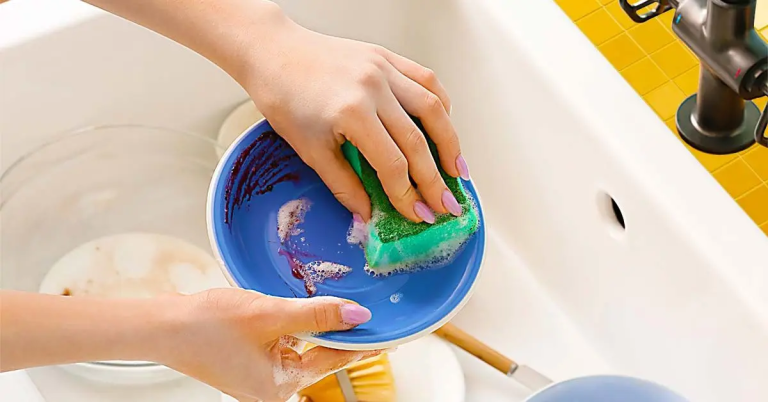ADVERTISEMENT
Put all the dishes in the sink while washing dishes
Full sink – source: spm
logo pinterest
Full sink – Source: spm
Having a full sink hinders the proper cleaning of dishes, but also makes this task complicated. Indeed, if you mix greasy pans or pots with other dishes, you risk finding grease all over your dishes. This will make cleaning more tedious. It is best to wash utensils by level of dirt. Start with the least dirty dishes, and finish with the most stained dishes. This will help you avoid cross-contamination with other dishes. Cross contamination refers to the transmission of bacteria from one food to another, via hands, utensils or the work surface. Cross contamination can lead to food infection. Hence the importance of ensuring the cleanliness of your dishes.
Overdosing on dishwashing liquid
We tend to believe that using a large quantity of dishwashing liquid allows for more effective cleaning. However, this belief is false. In fact, using too much dishwashing liquid can leave residue invisible to the naked eye on your dishes and plates. If using a dishwasher, it is recommended to add a water softener. In fact, limescale from hard water stains glasses and lids, scales the dishwasher and damages it. Not to mention that it can also lead to excess energy consumption. To save energy, also remember to check the energy label of a dishwasher before purchasing it. Choose the one marked A, which means that it does not consume energy.
Do not change the sponge used for washing dishes
Sponge for washing dishes – source: spm
logo pinterest
Sponge for washing dishes – Source: spm
The sponge used for washing dishes is a real breeding ground for bacteria. In fact, the humidity it contains encourages the development of microbes and bacteria. To avoid infecting your utensils, and therefore your food too, it is important to ensure good hygiene of your sponge. To do this, let your sponge dry as soon as you finish washing the dishes. Also remember to disinfect it and change it regularly. To eliminate bacteria on your sponge, you can soak it for 5 minutes in white vinegar. You can also after draining it of the vinegar water, put it in the microwave for 60 seconds to disinfect it.
Do not dry dishes before storing them
It is important to dry the utensils and dishes that you have cleaned thoroughly before storing them. This will help you avoid fungus and bad odors that develop due to humidity. To do this, remember to use a clean, dry cloth and change it regularly.
By avoiding these mistakes you will ensure good hygiene of your dishes, and effectively eliminate bacteria and germs.
ADVERTISEMENT
